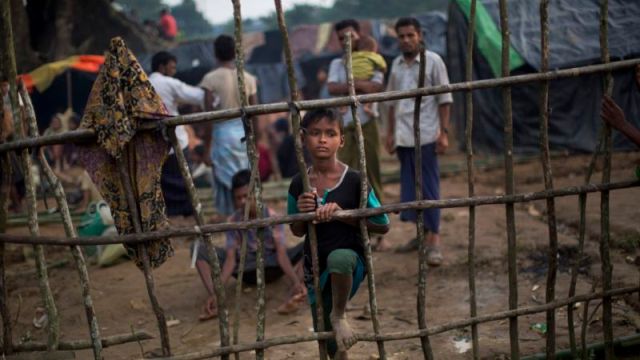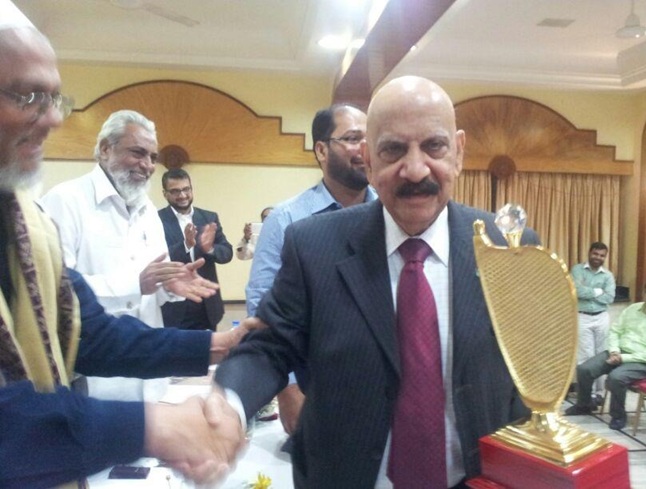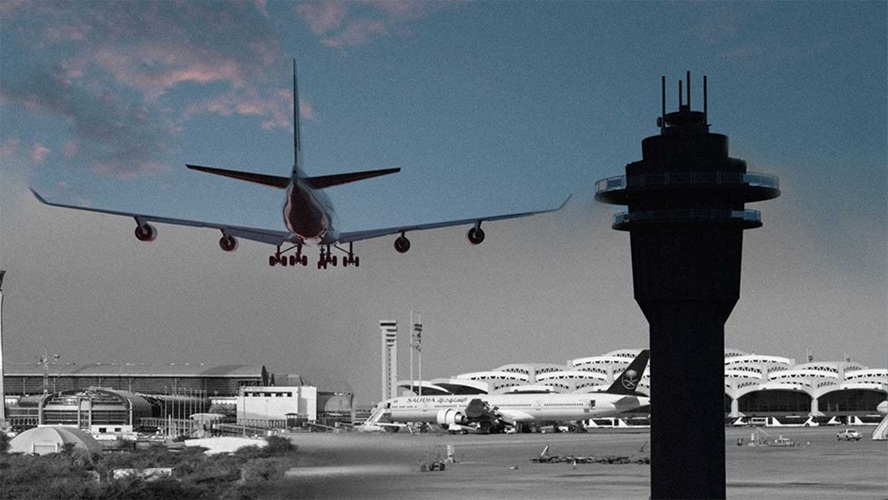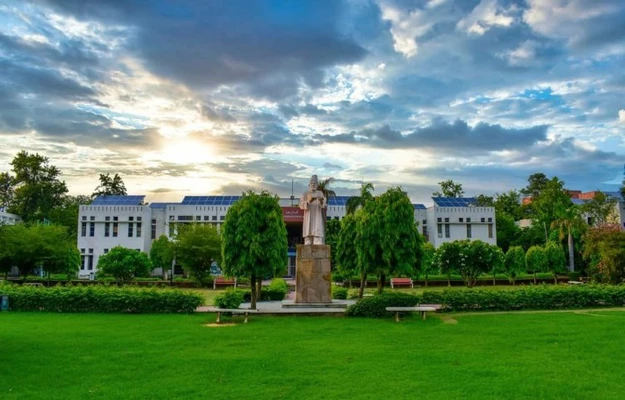The Delhi High Court gave several important directions to the authorities to protect peoples’ right to food and ensure no one goes hungry to bed
NEW DELHI – Slum dwellers, daily wagers, workers, homeless families, widow-headed households and transgenders on Monday narrated the painful stories of their survival and their struggle for food amid the coronavirus-induced lockdown at a public hearing organised by Delhi Rozi Roti Adhikar Abhiyan (DRRAA) to highlight the crisis of food insecurity and hunger among the working poor and marginalised communities in Delhi.
The economic distress caused due to the coronovirus disease (covid) pandemic, coupled with the inadequate response of the government, has resulted in people being unable to find adequate work to be able to afford food. The situation of those who do not possess a ration card and are not covered under the National Food Security Act is especially precarious as there is no scheme of the government to provide any rations to such people.
Chanchal, a resident of Lal Gumbad Camp in South Delhi, said that she had a family of five members and before the lockdown, her husband was working as a daily wage labourer and she was working as a domestic help. During the lockdown, they both lost their jobs and, for several months, were not earning any money. The family does not have a ration card and Chanchal said the food intake of the family had been severely impacted and both the quantity and type of food had suffered.
She said the family could not even afford milk for their tea and the children would keep asking for milk. All her three school-going children used to get one meal there under the Mid-Day Meal Scheme. However, due to the closure of schools since March, the mid-day meal has been discontinued and the government is providing money in lieu of food but the amounts provided by it are extremely inadequate and payments are erratic.
The Delhi government made provision for paying the food security allowance for March at the rate of Rs. 78 per child for the upper primary level and Rs. 94.60 per child for the primary level. Chanchal stated that her two older children received Rs. 78 in July while the youngest has not received anything. While Chanchal has found work recently, she is able to earn only Rs. 3,000 a month.
Rani (62), a resident of Jagdamba camp, is a widow and has been taking care of her two grandchildren since her son’s death. She does not have a ration card and used to work as a domestic help before the lockdown. Since March, she is out of work as no one is willing to have her work in their house on account of covid. The family has been in an extremely precarious situation and, in mid-July, her grandson aged 14 years resorted to working as a rickshaw puller to earn money to afford even basic food. Currently, he is working as a domestic help and earns Rs. 2,000 a month.
Soni, who is a resident of a slum camp, has 5 children but her family does not possess a ration card. Before the lockdown, she used to work as a domestic help and her husband used to work as a delivery boy in a shop, and together the two of them could earn around Rs. 15,000. However, both of them have been out of work since the lockdown. Due to rising covid cases, she is not being called to work by her employers. Her husband has also not been able to find work. The family does not have a ration card and during the lockdown, she applied for an e-coupon and received ration only once. The family lives on rent of Rs. 3,500 and is dependent for money and rations on her relatives and neighbours. They have accumulated a debt of Rs.15,000. Soni’s son who studies in Class XI has had to start work, earning around Rs 5,000. Right now, he is the only person who is working in the family.
Several people said that they had been forced to make their children work as the earning capacity of the adults has diminished significantly and the families are struggling to afford even two square meals a day. Of the more than 50 people who spoke at the public hearing, many of them said that the education of their children had been discontinued as they did not possess smart phones or could not afford the recharge money required for online classes.
Some handicapped pavement dwellers from Mazaar Park spoke about the difficulties being faced by them as they were surviving on alms or working on daily wages. Sanjay Kumar, Afroz Alam and Shyam Singh have disabilities and for their families, it was a daily struggle for basic food. While the Delhi government in June discontinued the scheme of providing free cooked hot meals through shelters, schools washed their hands of the responsibility claiming that as the lockdown restrictions had been eased, people did not require food anymore.
Narrating her tale of woe, Pooja, who lives in a homeless shelter near Connaught Place, Bangla Sahib Gurduwara, said that when she went to apply for a ration card, the food department refused to take her application as they insisted that she get an electricity bill even though she explained that she was homeless.
Several people said that they were facing problems in getting a ration card as it required address proof, aadhaar, identity proof, electricity bill, etc. The authorities make no provision for the most destitute and marginalised—the homeless, migrant workers, those living on rent in slums and transgenders who are as a result left out of the purview of the Food Security Act.
Reshma, Maharab and Reena, transgenders from Delhi’s Jehangirpuri, said their community faced a lot of problems because all avenues of traditional earning for them had been restricted and residents would not allow them to visit houses where wedding or births had happened. None of them has a ration card.
Countless construction workers, domestic workers and daily wagers said that they could not afford even two square meals a day. Women who recently had deliveries shared the hardships being faced by them as anganwadi services were severely curtailed and the hot cooked meal available for pregnant and lactating women had been discontinued.
In March, on account of the lockdown imposed to contain the spread of covid, lakhs of people lost all income-earning opportunities. At that time, the Delhi Rozi Roti Adhikar Abhiyaan (DRRAA) had filed a petition to the Delhi High Court regarding ensuring food security for people who do not have rations cards. During the course of hearings, the Court gave several important directions to the authorities to protect peoples’ right to food and ensure no one goes hungry to bed in Delhi.
Pursuant to these directions, the government provided rations to people on the basis of a temporary e-coupon scheme. The government received 54 lakh applications for e-coupons from people who do not possess ration cards. However, ration was provided only for two months and then discontinued. The government claimed that as the travel restrictions eased, all the migrant workers left Delhi and, therefore, there was no need to continue the scheme. Even the provision of free hot cooked meals through schools and shelters was discontinued.
Chief Engineer of the Delhi Urban Shelter Improvement Board Sanjay Kumar Mahajan, prominent economist Jean Dreze, senior journalist Pamela Philipose, senior Supreme Court advocate Sanjay Parikh, Biraj Patnaik and Anjali Bhardwaj, Annie Raja, and Dipa Sinha from the Delhi Rozi Roti Adhikar Abhiyan attended the hearing.
The DRRAA demanded that the Delhi government and the Central government immediately launch a programme to provide rations to all those who needed it, irrespective of whether they possess a ration card. A ‘Covid Ration Card’ must be issued to all people and 10 kg of grains, pulses, edible oil should be provided till the time the Disaster Management Act is in force and there is economic distress.
Further, the Mid-Day Meal Scheme must be immediately properly implemented and in lieu of hot cooked food, dry grains, along with eggs, fruits,etc, should be provided to all children and essential anganwadi services, including hot cooked meals for pregnant women, be restored. Also, the government must implement the accountability measures of the Food Security Act by setting up the Food Commission and undertaking social audits as, the Abhiyan feels, proper oversight is more crucial than ever before.






0 Comments